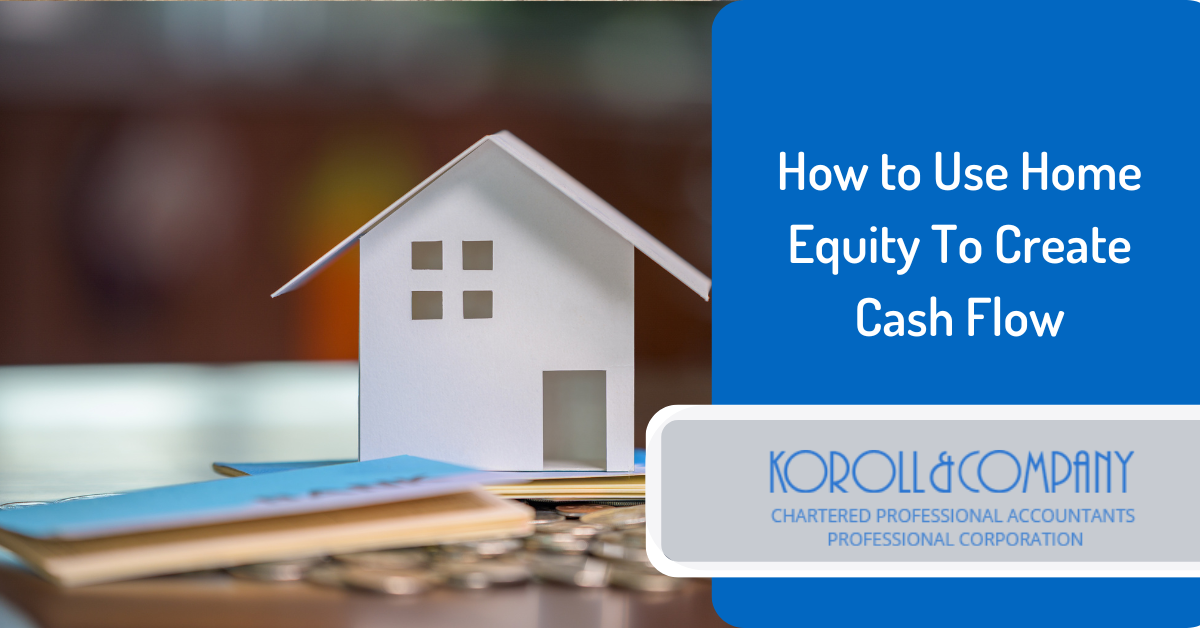 If you need cash flow for personal or business expenses, you may want to consider borrowing money against your home.
If you need cash flow for personal or business expenses, you may want to consider borrowing money against your home.
There are two ways to use home equity to access funds. The first is a home equity line of credit (HELOC). The second is a reverse mortgage. In this blog we look at what both of these options are, and what they mean.
What is HELOC?
Home equity is your share of the value of your home. It’s equal to the fair market value of your home less the amounts you owe on your mortgage.
For example, if your home is valued at $850,000 and you owe $500,000 on your mortgage, your home equity is $350,000 ($850,000 – $500,000).
A HELOC is a line of credit that allows homeowners to borrow money as they need it by tapping into this home equity, up to a specified amount. Unlike a standard bank loan, which is a fixed amount of money distributed as a lump sum, a line of credit gives you access to funds that can be withdrawn as you need it. That means you can make withdrawals at any time and in any amount, so long as it does not surpass the credit limit.
Because the line of credit is secured against your home, it generally allows for lower interest rates - though these interest rates are usually variable.
When it comes to repayment, a HELOC works more like a credit card than a loan. Instead of making set monthly payments, you pay off the HELOC as you are able to. In fact, most HELOCs do not have payment obligations until the homeowner passes away or they sell the house. You will however have to pay interest on the total amount borrowed every month.
If, for example, you withdraw $10,000 from a HELOC with an annual interest rate of 6%, you would have to pay $50 a month in interest until the amount is paid off. If you made a $5,000 payment, your interest would go down to $25 per month. This amount would continue to fluctuate based on withdrawals, payments and changes to the interest rate.
This means, when you pass away or sell the house, you will only have to pay back what was borrowed. You can also choose to pay back the HELOC before you pass away or sell, meaning that no money will be due at that time.
What is a reverse mortgage?
A reverse mortgage also lets you borrow money based on the fair market value of your home. When entering into a reverse mortgage, you have the option to receive a lump sum, a series of payments at regular intervals or a combination of both.
Similar to an HELOC, you are not required to repay the borrowed amounts until you pass away or sell the home. One major difference between a HELOC and reverse mortgage is that the latter does not require monthly interest payments. Instead, interest is accumulated on borrowed amounts over the entire borrowing period. This means, when you sell your house or pass away, you will owe the borrowed amount plus the accumulated interest.
In addition, if you choose to move or sell the house within a few years of acquiring your reverse mortgage, you will have to pay a prepayment penalty. The time period in which this penalty will be levied and how much will depend on the terms of your reverse mortgage with your lender.
As with any funding strategy, whether a reverse mortgage or HELOC is the right choice for you will depend on your specific situation. To discuss these cash flow solutions, and other possible options available to you, please contact our team of chartered professional accountants today. We will help you develop the right strategy for your personal and professional goals.






